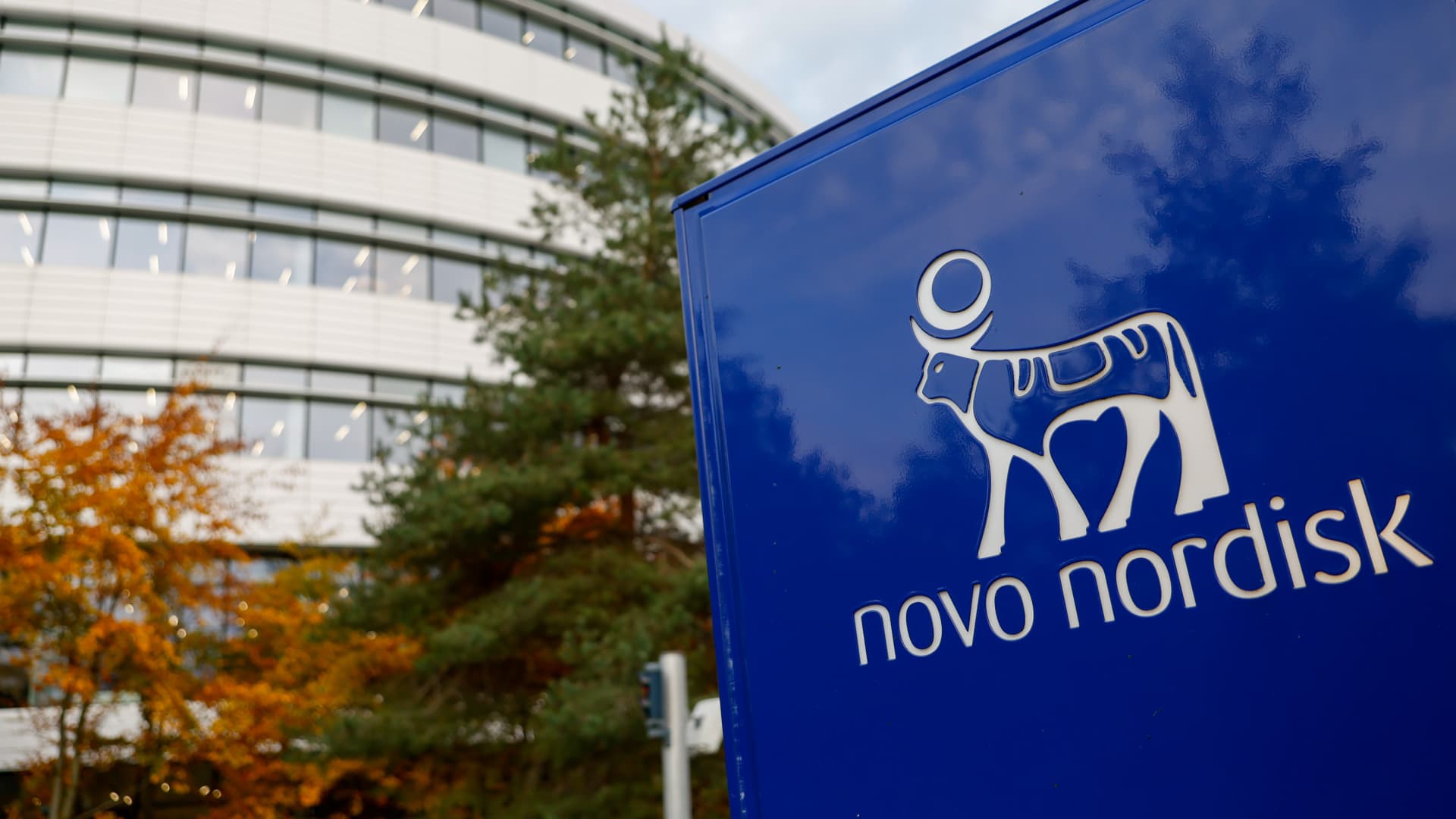Novo Nordisk Shares Plunge After Semaglutide Fails Alzheimer's Trial; Company Faces Market Challenges
 Denmark
Pharmaceuticals
Denmark
Pharmaceuticals

Novo Nordisk shares plunged to a four-year low after its semaglutide Alzheimer's trial failed to slow cognitive decline, despite biomarker improvements. The Dan
Novo Nordisk Shares Plunge After Alzheimer's Drug Trial Fails to Meet Key Goal
Novo Nordisk, the Danish pharmaceutical giant, experienced a significant setback as its shares plummeted to a four-year low following the disappointing results of a highly anticipated Alzheimer's disease drug trial. The company's experimental treatment, semaglutide – the active ingredient in its blockbuster diabetes and weight-loss medications Ozempic and Wegovy – failed to achieve its primary objective of slowing cognitive decline in patients.
A "Lottery Ticket" That Didn't Pay Off
Analysts had tempered expectations prior to the trial results, often calling it a "long shot," a sentiment echoed by Novo Nordisk itself which labeled the endeavor a "lottery ticket." While two separate trials did show improvements in Alzheimer's disease-related biomarkers, these positive indicators regrettably did not translate into the desired delay in disease progression. The ambitious goal was to reduce patients' cognitive decline by at least 20%.
The market reacted swiftly, with Novo Nordisk stock dropping 10% to 274 Danish kroner ($42.33) in early trading, marking its lowest value since mid-2021. Martin Holst Lange, Novo's Chief Scientific Officer, acknowledged the low likelihood of success but emphasized the company's responsibility to explore semaglutide's potential given the profound unmet need in Alzheimer's treatment and some earlier indicative data.
Setbacks Amidst Market Challenges
This trial failure represents a significant blow to investors who had hoped for a much-needed boost to the company's stock, which had already seen its value halved year-to-date even before Monday's announcement. Novo Nordisk has been grappling with intense competition, particularly in the crucial U.S. market, and has issued several guidance cuts, partly blaming "compounders" offering cheaper, copycat versions of semaglutide.
Treating Alzheimer's disease, the most prevalent form of dementia, remains an extraordinary challenge. The global population's aging trend suggests an increasing number of individuals will be affected. While existing treatments like Eli Lilly's Kisunla and Biogen/Eisai's Leqembi have shown some efficacy in slowing progression (up to a third), they also carry the risk of severe side effects. Following Novo's news, Eli Lilly's shares saw a slight dip, while Biogen's stock rose.
The GLP-1 Connection and Future Outlook
Novo Nordisk's decision to investigate Rybelsus, an oral form of semaglutide, for Alzheimer's was largely inspired by real-world data hinting at a correlation between semaglutide use and Alzheimer's. The drug functions by mimicking the gut hormone GLP-1, which regulates blood sugar and promotes satiety. The exact mechanism by which GLP-1s might benefit Alzheimer's patients is still under investigation, but current theories suggest a potential role in targeting neuroinflammation.
Topline results from the trial are slated for presentation at the Clinical Trials in Alzheimer's Disease conference on December 3rd, with a more comprehensive disclosure expected at the 2026 Alzheimer's and Parkinson's Diseases Conferences in March.
Navigating a Competitive Landscape and Internal Shifts
Despite Novo Nordisk's recent struggles, its rival, Eli Lilly, achieved a staggering $1 trillion market capitalization just last week, demonstrating the fierce competition in the pharmaceutical sector. Even with Ozempic's four-year head start over Lilly's Mounjaro, Novo has found it challenging to maintain its market lead, especially in the U.S.
The company has also undergone significant internal restructuring. Recent months saw the replacement of its chairman and half its board members due to disagreements between the former board and the controlling shareholder, Novo Nordisk Foundation, regarding the pace of necessary market adaptations. This leadership overhaul also included the departure of former CEO Lars Fruergaard Jørgensen after an eight-year tenure, directly linked to the company's stock decline. The new CEO, Mike Doustdar, has since initiated a strategic shift, refocusing commercial priorities on the core obesity and diabetes businesses and implementing a global workforce reduction of over 10%.
The path ahead for Novo Nordisk involves navigating a highly competitive market while rigorously focusing on its established core strengths, following this ambitious but unsuccessful venture into Alzheimer's treatment.

